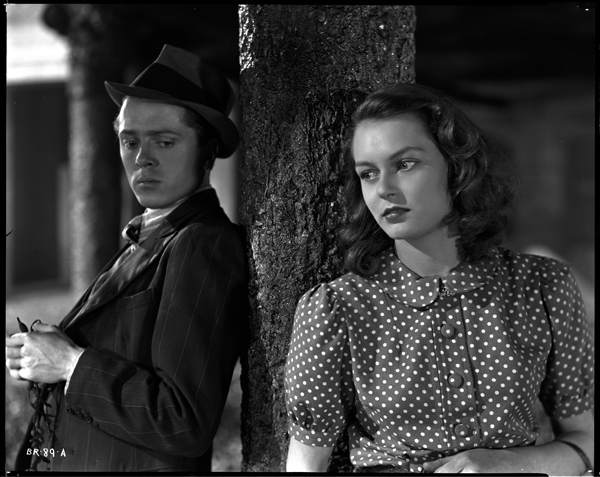|
Reviews of Recent Independent, Foreign, & Documentary Films in Theaters and DVD/Home Video

BRIGHTON ROCK Baby boomers take notice. Actress Hermione Baddeley, probably best known for her cockney domestics—the flabbergasted Ellen of Mary Poppins and the soused Mrs. Naugatuck from the sitcom Maude—has her biggest role in the Brit noir Brighton Rock (1947). As brassy, boozy, and blonde entertainer Ida Arnold, she is a blast of smoky and stale music-hall air. Baddeley virtually grew up on the stage, and in one scene, with Ida hamming it up in her variety act, you have a sense of Baddeley as she would have been surrounded by footlights. Yet her performance is crafted for a camera’s close-up. When Ida listens, she’s absorbed. She’s maternal, empathetic, and carnal. Ida would simply describe herself as inquisitive. She becomes an amateur sleuth uncovering the truth behind the death of journalist Frank Hale (Alan Wheatley) at an amusement park in the seaside resort of Brighton (sunny, on-location exteriors/seedy, dilapidated interiors). The official report of his demise doesn’t add up in Ida’s mind—plus, she owes him. He did buy her a drink and loan her some money, after all, with no strings attached. The material, based on Graham Greene’s 1938 novel, was first turned into a play in 1943, with Baddeley as Ida, and Greene, reportedly displeased with her performance, wanted her role to be deemphasized in the film. Even though she does not have the most screen time, Greene lost that battle. When she’s on screen, Baddeley jolts the audience to attention. Equally revelatory is the performance of Sir Richard Attenborough as the small-time razor-yielding gangster Pinkie Brown, since much of Attenborough’s work as an actor from the ’40s and ’50s is relatively unknown in the U.S. In place of his now-grandfatherly twinkle is a vacant, guarded, and challenging stare. Pinkie looks like a choir boy gone bad—a 17-year-old nattily dressed hoodlum on the losing end of a turf war. The one person who could implicate Pinkie in Fred’s
death is mousy 16-year-old Rose (Carol Marsh), a breathy, delicate, girl
next door. Marsh, then 18 and in her first film, takes on a role that’s
probably too unyielding, too messy to narrow down to a 92-minute crime
drama. Neither Marsh nor the script differentiates between Rose’s
naiveté and willful denial. She realizes that Pinkie wants her to lie
for him and that, in the course of the film, two men have died, both
connected to Pinkie. Is she disingenuous or dissembling? She only met
him days earlier during her first day working as a waitress and has
puzzlingly fallen in love with him though his courtship manner is rough,
chaste, and charmless. What draws a shy,
rosary-carrying Catholic girl to the psychotic Pinkie remains the film’s
murkiest mystery, let alone why she would even consider committing, at
Pinkie’s behest, the mortal sin. Whatever questions or reservations a viewer may have
about the adaptation are wiped out by the stunning ending. Though it was
altered from the novel to appease censors, it’s not really a compromise.
In its own way, it is just as harsh, and more ambiguous. Kent Turner
|

